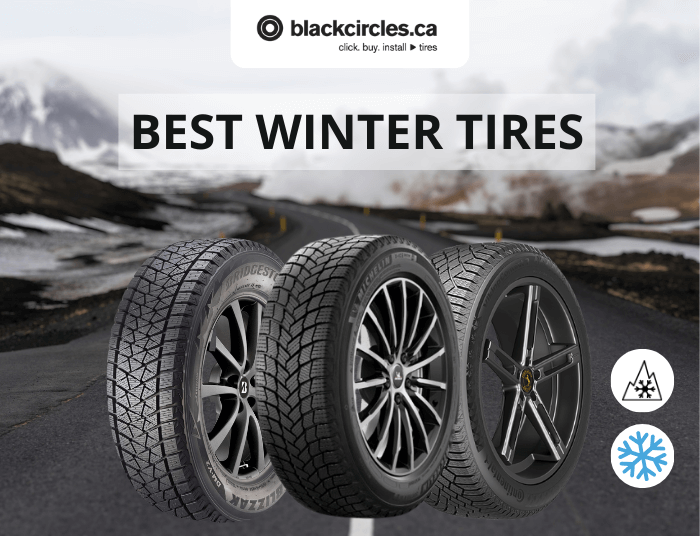

Winter Tires with Local Installation on Blackcircles.ca
Winter tires are essential for ensuring your safety on Canadian roads during the cold season. Specifically designed to provide optimal grip on snow, ice, and wet roads, winter tires are made from rubber compounds that remain flexible at low temperatures, thus ensuring better traction.
Winter tires are mandatory in some provinces of Canada. For example, in Quebec, they must be installed from December 1 to March 15. Although not mandatory in all provinces, some offer incentives to encourage their use, such as reduced insurance premiums in Ontario.
Blackcircles.ca offers a wide range of winter tires at the best prices with local installation across Canada.
Popular Winter Tires
We understand the importance of choosing the right tires for your vehicle. To meet the needs of every motorist, Blackcircles.ca offers a wide range of winter tires, from premium models to more economical options. By purchasing your tires on Blackcircles.ca, you also benefit from installation at a nearby mechanic center, ensuring your safety and satisfaction.












Winter tires: Benefits and features
- Mandatory in some provinces like Quebec and British Columbia; recommended when the temperature drops below 7 degrees Celsius.
- Essential for harsh winter conditions, offering excellent traction on snow and ice.
- High natural rubber content compounds to maintain flexibility in freezing temperatures, with large grooves to channel snow and water.
Shop our Winter Tire Buying Guides
Discover our other specialized guides to make the best choice of winter tires suited to your specific needs. Whether you drive an SUV, an electric car, or are seeking optimal performance, our supplementary guides provide all the information necessary for safe and efficient driving in winter.
Frequently asked questions about winter tires
Winter tires are specially designed to provide better traction, grip, and safety in harsh winter conditions, including snow, ice, and freezing temperatures.
Winter tires are made with rubber compounds that stay flexible at low temperatures, ensuring better grip and reducing the risk of skidding and accidents in winter conditions.
In some provinces, such as Quebec, winter tires are required from December 1 to March 15. It's advisable to check your province's specific regulations.
Winter tires are optimized for performance at temperatures below 7 degrees Celsius, featuring softer rubber compounds and specific tread patterns for snow and ice.
All-season tires provide moderate performance across various conditions but aren't as effective as winter tires in severe winter conditions.
In Quebec, it's mandatory to install winter tires before December 1. For other provinces, check local regulations for specific dates.
In Quebec, you can remove winter tires starting from March 16, after the mandatory period. Dates may vary in other provinces, so check local rules.
It's not recommended to use winter tires in summer. The rubber compounds of winter tires wear out faster in hot weather, reducing their effectiveness and lifespan.
No, it's not recommended to use winter tires all year round. They are designed for winter conditions and wear out faster on hot, dry roads, affecting your vehicle's performance and increasing long-term costs.


 Not sure what your tire size is ?
Not sure what your tire size is ?


